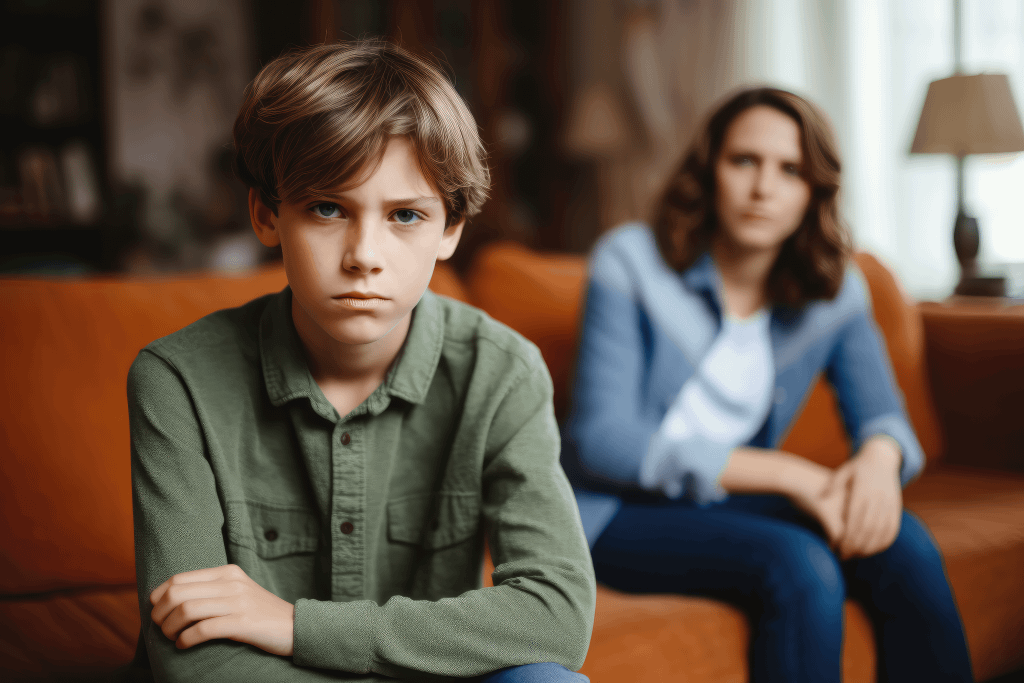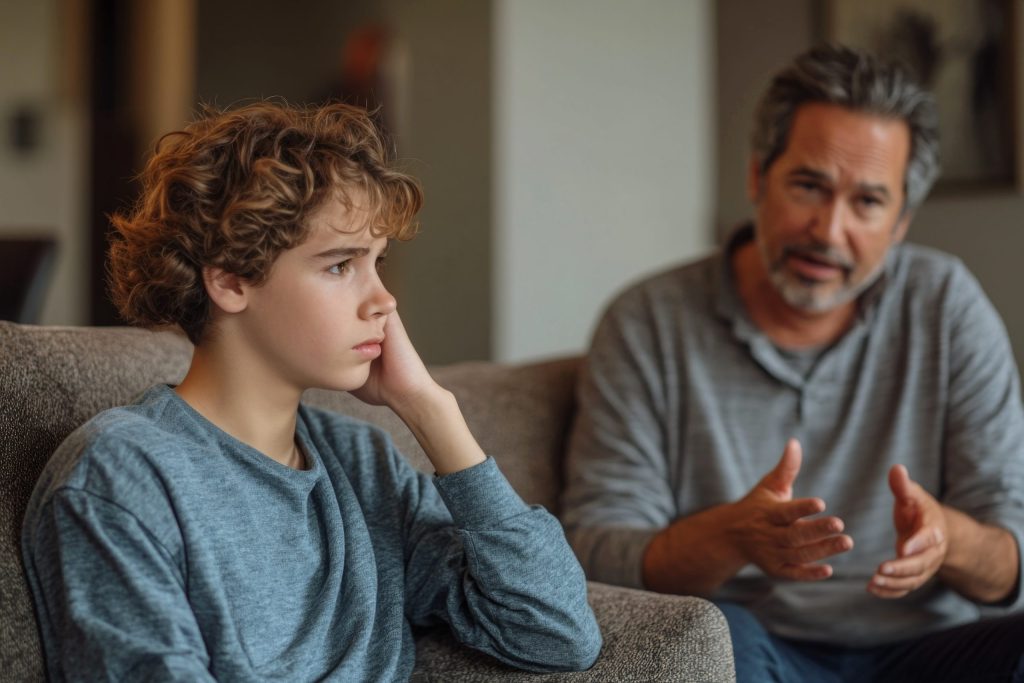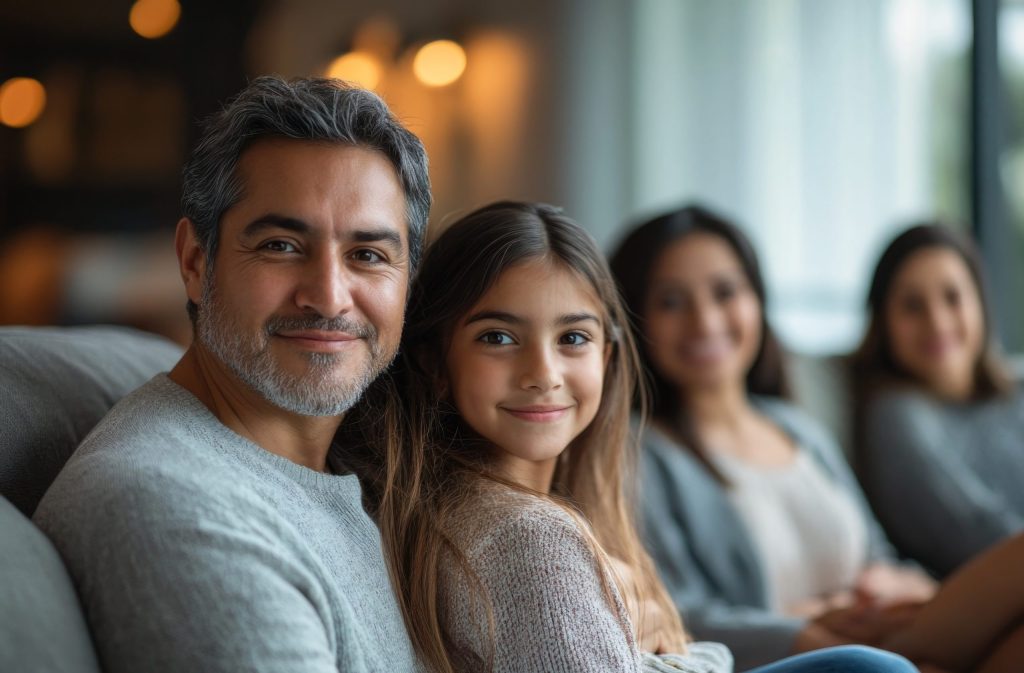Healing happens best together
You’ve been there for every milestone: their first steps, their first day of school, their first heartbreak.
So when your teenager is struggling with their mental health, the instinct to be deeply involved in their healing process is natural. It’s also essential.
Outdated mental health treatment models often isolate teens, treating them as a sole “problem” to be fixed. But a powerful shift is underway, confirming what parents have always known: healing happens best together.
This move toward family-centered therapy is more than a trend; it’s a return to the fundamental truth that a teen’s well-being is intrinsically linked to the health of their family system.
At Avery’s House, we don’t just welcome family involvement—we have built our approach around it.

What is family-focused therapy?
So, what is family-focused therapy? Simply put, it views the entire family as the “client.”
Instead of focusing only on the teen, it recognizes that family dynamics, communication patterns, and relationships are all crucial parts of the therapeutic process.
The goal isn’t to place blame but to empower every family member with the tools and understanding needed to support the teen and improve the overall health of the family unit.
This approach means that parents and siblings are seen as vital allies in a teen’s recovery. It’s a collaborative effort where everyone learns, grows, and heals.

What does family therapy actually look like?
The idea of bringing your whole family into a therapy room can feel intimidating.
You might worry about blame, arguments, or awkward silences.
But a family therapist’s primary job is to create a safe, structured space where productive conversations can happen. While every session is unique, you can generally expect the process to involve a few key elements:
- A safe space: The first priority is establishing ground rules for communication. The therapist acts as a neutral guide, ensuring everyone has a chance to speak and be heard without interruption or judgment. This creates a foundation of respect that might be missing at home.
- Setting collaborative goals: The therapist will work with your entire family to identify a few key goals. This isn’t about listing problems but about asking, “What would we like to be different?” This ensures everyone is working toward a shared vision for a healthier family life.
- Learning and practicing new tools: Much of the work involves learning new, healthier ways to communicate. You’ll practice skills like active listening, expressing needs clearly without blame, and de-escalating conflict. Your therapist coaches you through these interactions in real time.
- Understanding one another’s perspectives: Major breakthroughs often happen when family members truly hear one another’s experiences. The therapist helps translate a teen’s anger, silence, or defiance into its underlying feelings of hurt, fear, or frustration, building empathy and understanding between parent and child.
The goal of family therapy isn’t to determine who is “right” or “wrong.”
It’s a practical, hands-on process of untangling problematic dynamics and equipping your family with the skills to build a more connected and supportive future.

The power of the family-centered approach
Family therapy with teens does more than keep parents in the loop; it fundamentally improves treatment outcomes. Research has consistently shown that the family-focused therapy model leads to more sustainable, long-term success. Here’s why it’s so effective:
- It enhances the environment: A teen doesn’t exist in a vacuum. A family-centered approach can identify and address unhealthy communication styles or dynamics at home, ensuring the teen returns to an environment that fosters continued growth rather than triggers old struggles.
- It empowers parents: Feeling helpless is one of the worst parts of having a struggling child. Family therapy demystifies your teen’s experience and equips you with practical strategies to manage crises, set healthy boundaries, and communicate effectively. It transforms your role from a worried bystander to a confident, skilled ally.
- It builds lasting connection: Mental health struggles can create deep rifts in families. The structured, safe space of therapy allows for honest conversations that rebuild trust, foster empathy, and strengthen a strained parent-child bond.
- It reduces the stigma at home: When the whole family participates, it sends a powerful message to the teen: “You are not the problem. We are in this together.” This shared responsibility removes the shame and isolation your teen may be feeling.

How Avery’s House leads with family-inclusive care
At Avery’s House, family-centered therapy is at the heart of everything we do. We know that for your teen to truly heal, your family needs to heal alongside them. Our commitment to this philosophy is woven into every aspect of our programs.
From the very beginning, your family is integrated into the treatment process. We provide
- Family therapy sessions: You will regularly engage in sessions with your teen and their primary therapist. This is a dedicated time to work on communication, address specific challenges, and practice new relational skills in a supportive environment.
- Parent coaching and education: We provide the resources and education needed to understand your teen’s anxiety, depression, or trauma. You’ll learn the “why” behind their behaviors and the “how” of providing effective, trauma-informed support at home.
- Collaborative treatment planning: You are a key member of your teen’s care team. We collaborate with you to set goals and ensure that the treatment plan aligns with your family’s values and your teen’s unique needs.
We believe that when a family heals, the foundation for a teen’s lifelong well-being becomes infinitely stronger. It’s not just about getting your teen through a crisis; it’s about setting up your entire family for a healthier, more connected future.
If you’re looking for a program that sees you as a partner, not a visitor, you’ve found it. Contact Avery’s House today to learn more about our commitment to family-centered healing.